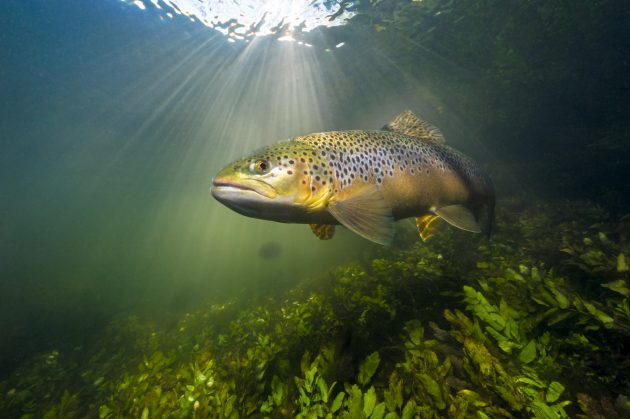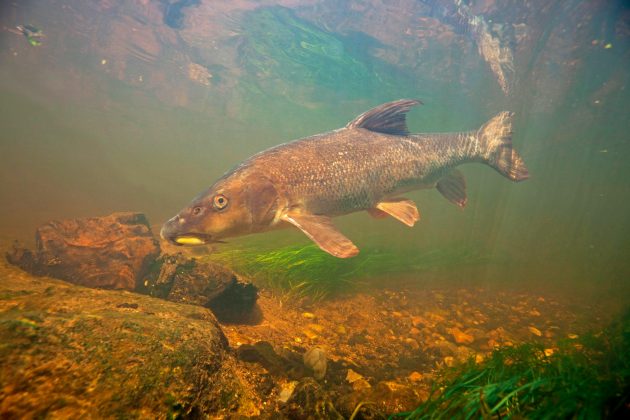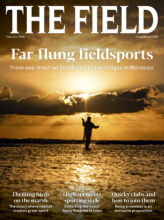Fishing is at a crossroads but if anglers can change their expectations, this wonderful sport will live on says John Bailey
One of the great benefits of my position as fishing consultant for the BBC 2 series Mortimer & Whitehouse: Gone Fishing is that I get to spend much of the year on our great game rivers talking to the owners and keepers who matter. The overwhelming consensus is that fishing is at a crossroads and that the future of game fishing must be addressed.
Peter Orchard, keeper at Longford on the Hampshire Avon, knows the number of trout anglers is in decline. “Numbers are falling while the average age is increasing. We’ve got to be flexible in the way we run rivers and be open to new attractions,” he says. This concern comes at exactly the time that the Environment Agency (EA) is bent on limiting the numbers and sizes of stocked trout into rivers, or stopping the practice altogether. This move might be welcomed overall but it is bitterly opposed on the southern chalkstreams, the Test notably.

Simon Cooper, the founder of Fishing Breaks, points out: “The Test has been stocked artificially for nearly 200 years and there is no scientific evidence whatsoever that wild brown trout are harmed. Stocked and wild fish lead largely separate lives and don’t unduly impact on each other. The fact is that chalkstreams like the Test need to be micromanaged, and that demands the money that commercial angling provides. The serious money that anglers fork out for a day on the Test pays for the keepers and the constant care they lavish on it. There are not enough wild browns to satisfy the number of rods that fish the Test and it has been recognised since Victorian times that stocked trout meet the demands and expectations of those who pay handsomely to visit it. Nothing has changed other than personal preferences at the EA and Natural England.”

While there might be trouble ahead, there is also hope. There are some bright, focused riverkeepers out there, several of them alumni of Sparsholt College in Hampshire. Jon Hall at Broadlands, James Buckley at Wherwell on the Test and Jan Hobot at Haddon Hall on the Derbyshire Wye and Derwent personify new ideas and even new ways of fishing. Add keepers with the experience of Peter Orchard on the Avon and Brian Towers on the Ure, as well as young and innovative guides such as Olly Shepherd on the Tees and Marina Gibson on the Tyne, and you have an impressive body of informed opinion that can see a reshaped future for wild fish angling.
Let’s settle first the thorny issue of the Test and the prime chalkstreams. Sane opinion suggests the EA has the sense to leave these fisheries alone and, for once, ditch its doctrinaire objectives. These are well-managed rivers and of historic and financial importance. “My job will be jeopardised if the estate can’t pay for me,” says Buckley. “There aren’t enough wild fish to go around and cutting back on stocked fish isn’t going to make any difference. The anglers who come here have high expectations and pay good money to fulfil them, and without this revenue the river will not be looked after like it is now. Without keepers, problems such as predation will increase and wild fish stocks will be reduced. The whole life of the valley will change. Look at a town like Stockbridge and the amount of anglers’ money coming into it. That would shrink dramatically. It’s not win-win. It would be lose-lose.”

There are many things that those who live and work on fishing rivers agree upon. First, the numbers of stocked fish will decrease anyway, whatever the EA decrees. Stocked fish are ever more expensive to buy and the desire for wild fish has grown exponentially over recent years, partly as a result of good work by the Wild Trout Trust. However, there must also be a change in expectation. Catch and release is now firmly established but there has to be a realisation that we’ll probably catch fewer, smaller fish in the future. And, being wild, they’ll be harder to catch as well. Most will welcome this challenge and if you speak to great Scottish keepers such as Calum McRoberts at Meikleour on the Tay, even salmon fishers are at some sort of ease with lower catch returns.
If we take the top chalkstreams out of the equation, there is a consensus that wild fish angling might have to diversify and become cheaper. Salmon fishing on the Tyne does not need to cost a king’s ransom and a season ticket on the Tees can come in cheaper than a single day on the Test. Plenty of proficient anglers are finding wild fishing at reasonable prices, and they are happy to fish hard for tough challenges instead of big bags. This attitude is good for the environment, the pocket and for the level of fishing skills nationwide.

But wild fish doesn’t mean only trout. Recently there has been a big shift in the popularity of grayling, now an iconic target species among younger anglers. Buckley is a magnificent grayling fisher and loves to see grayling anglers on the Test, providing they are not seeking out-of-season trout. Grayling can become a significant source of income for fisheries between November and March. And the actual fishing? Until you have hooked a 3lb grayling on fourweight gear, you have no concept of how impressive these fish are.
“I get more enquiries from anglers after pike than from those wanting salmon,” says Hall. “Once fisheries demanded pike be shot and nailed to the hut door but now we see big pike as an integral part of good river health. Here we have particularly large pike and in the clear waters of the Test the visual fishing is riveting. You can watch a 10in fly working from the moment it lands and when this great shape emerges and takes, all hell is let loose.” Here, then, is another wild fish species providing great sport, possibly for a new breed of fly anglers, without the financial or environmental cost of any stocking policy.
In the 1980s the time I spent on my local river, the Wye (the Herefordshire and Welsh one), centred around salmon. Today, I still love the river as much or more than I did and I still adore flyfishing on it but now my target is barbel, which are nigh on as big as salmon, fight every bit as hard and are far more resilient to ecological changes than migratory fish. A ticket from the Wye Usk Foundation costs a pittance if you fancy it and the sport is demanding but breathtaking. My wife, Enoka, hooked a fish just shy of 10lb last summer on a nymph fished French leader-style and its runs were as long and unstoppable as any bonefish could muster. Simon and Mark Drury are Icelandic salmon fishers but after two days chasing barbel with me last summer, they are planning to return to the Wye again this year.
Perhaps the finest example of the growing enthusiasm for wild fish is in Derbyshire on the Haddon estate. “We’ve been totally wild for years now and have never looked back,” says Jan Hobot. “Rods can pursue wild rainbows, wild browns, wild grayling, wild chub and wild barbel all on the fly, knowing nature has produced every one of them.” On my last visit to Derbyshire I met up with syndicate rods out after grayling, but all our talk was of barbel flies and how best to fish them. They relished the chub too and reckoned a fly-caught six-pounder a tremendous achievement. All in all, they professed themselves happy with their angling lot and why wouldn’t they be on those glorious rivers, fishing for wondrous fish in the style that they love?

For this utopian vision to be realised in rivers away from Haddon (where it already exists in spectacular fashion), several obstacles have to be overcome. Older anglers, like me, who might be entrenched in their ways have to realise the times are changing and that fishing objectives have to be modified. Large, comparatively easily caught fish might have to be a thing of the past but that’s not a bad thing. They might have to be educated that big pike are part of a river’s ecology and that grayling, barbel and chub are not the reason behind salmon misfortunes. In fact, the old class divisions between game and coarse fish that have divided the sport for generations might just have to be dismantled or at least modified. Equally, young anglers need to accept that wild fisheries are harder than commercial ones and how you catch a fish is more important than its size. They have to learn to manage expectations and understand that fishing is an art to be learned steadily, over a lifetime, and that meaningful successes don’t come along after five minutes. Instant gratification is not something that wild fish provide.
Vitally, the EA has to become less wedded to doctrine and more open to debate. It has to realise that a single policy does not necessarily fit all rivers and that there are vast discrepancies between the chalkstreams of Wessex and the tumbling rivers of the North York Moors. Its policymakers would do well to remember they are anglers’ servants not our masters and that our licence fees pay their salaries.
Above all, it is no good for the EA to preach the value of wild fish unless it can promise to deliver rivers capable of sustaining those wild fish. There are few in the UK now who do not recognise the deficiencies in the way rivers are managed nationally. Much of the fault lies at the EA’s doorstep. Those I have talked to are keen for the EA to understand their message, which is clear and simple: forget rivers such as the Test. Realise that most river fisheries are turning to wild fish. Understand that it is up to the EA to get its act together, do its job and sort out water-quality issues once and for all.
Once that is done there is a chance we can all be happy, and wild fishing might just become a glowing, diverse, inclusive and exhilarating sport we can all enjoy. And one with a terrific future.




